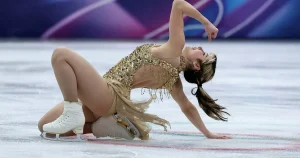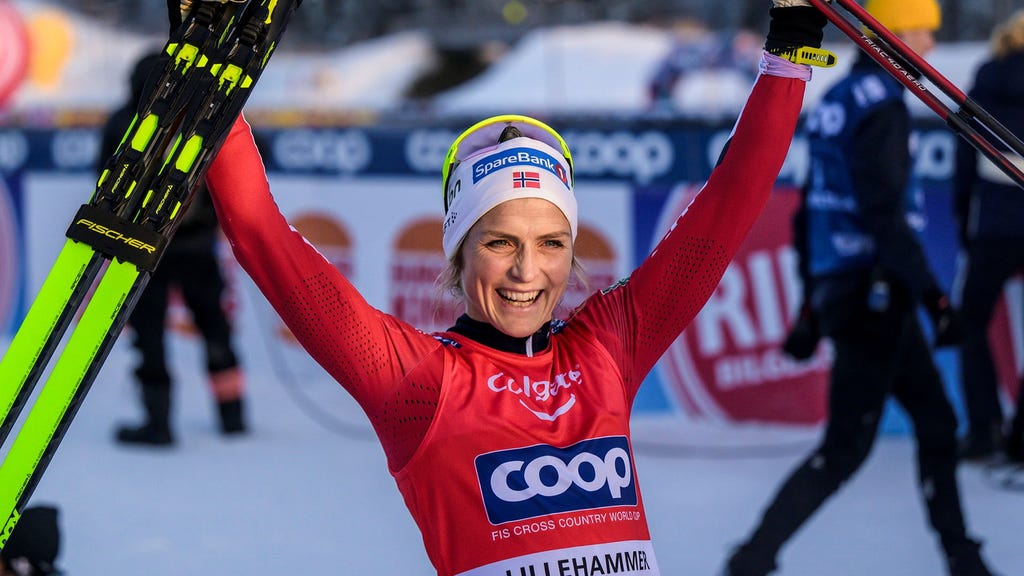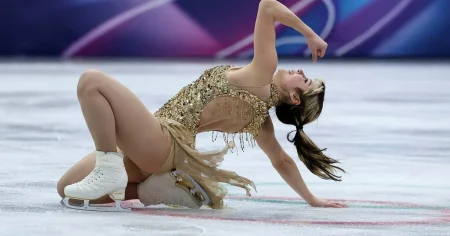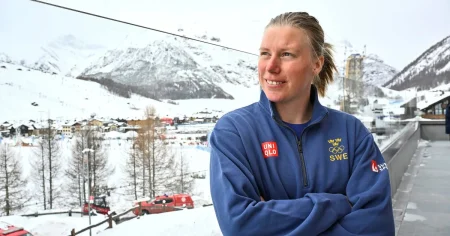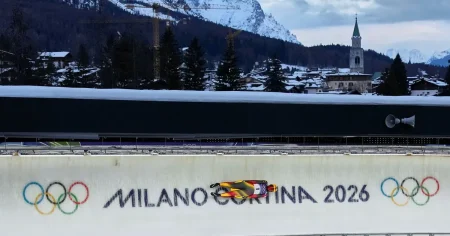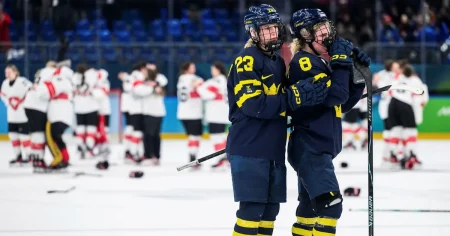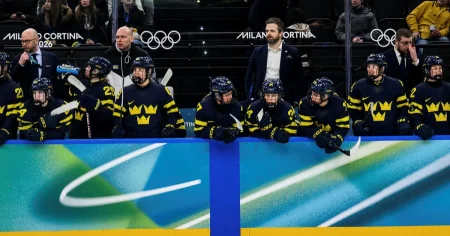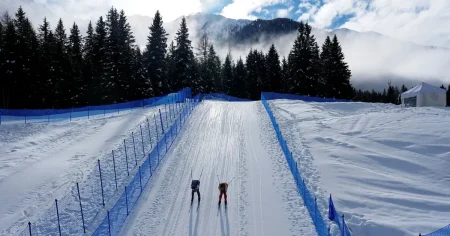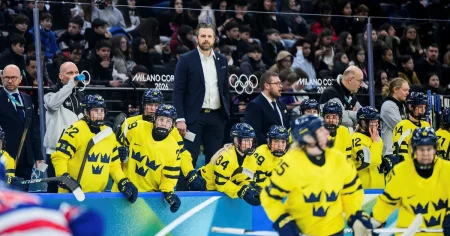Ebba Andersson, the Swedish cross-country skier, finished fourth in the skiathlon race in Lillehammer, Norway, unable to match the dominant performance of Therese Johaug. Johaug, the Norwegian skiing phenomenon, built a substantial lead after the halfway point of the race, ultimately crossing the finish line a commanding 42.6 seconds ahead of her closest competitor. Andersson, despite her best efforts, couldn’t keep pace with Johaug’s blistering speed and was relegated to fighting for a spot on the podium. However, even that proved elusive as she was also outskied by Heidi Weng of Norway and Jessie Diggins of the United States.
Andersson’s fourth-place finish continues a trend of near misses for the Swedish skier. She has yet to secure a podium finish in the early stages of the World Cup season, despite demonstrating competitive performances. Reflecting on the race, Andersson acknowledged the superior strength of her rivals in the final stages, admitting her inability to match their pace. Although disappointed with the result, she maintains a positive outlook, expressing hope for improved performances in upcoming competitions. Andersson acknowledges that while her results have fallen short of expectations, there are underlying reasons for her performances thus far.
Andersson’s consistent, if not podium-worthy, performances highlight the competitive landscape of women’s cross-country skiing. While Johaug’s dominance remains a significant hurdle, Andersson’s placement among the top contenders demonstrates her potential. Her current results, including a sixth, ninth, seventh, and fourth place finish across the Ruka and Lillehammer races, suggest that she is a consistent presence near the front of the pack and a force to be reckoned with. The challenge lies in translating this consistency into podium finishes, and eventually, challenging Johaug’s supremacy.
Fellow Swede Jonna Sundling, fresh off a victory in Saturday’s sprint event, finished sixth in the skiathlon, a significant 1 minute and 36 seconds behind Johaug. Sundling, while acknowledging the difficulty of keeping up with the Norwegian, affirmed her efforts to maintain contact with the leading group for as long as possible. The vast difference in finishing times underscores the sheer dominance of Johaug and the challenging task faced by her competitors. Sundling’s result, while outside the podium, still represents a respectable performance given the demanding nature of the skiathlon and the formidable competition.
Andersson’s decision to skip the upcoming World Cup races in Davos, Switzerland, scheduled for December 13-15, signals a strategic focus on the Tour de Ski. This multi-stage event, commencing on December 28th, represents a significant opportunity for Andersson to showcase her endurance and overall skiing prowess. By bypassing Davos, she can prioritize rest and targeted training, aiming to peak during the grueling Tour de Ski. This strategic decision highlights the importance of periodization and prioritizing key events in a demanding World Cup season.
Andersson’s focus on the Tour de Ski underlines the importance of this event in the cross-country skiing calendar. The Tour de Ski, with its varied race formats and challenging terrain, tests an athlete’s comprehensive skiing abilities. It provides a platform for skiers to demonstrate not only their speed and endurance but also their tactical acumen and ability to recover quickly between stages. Andersson’s decision to target this event suggests a belief in her ability to perform well in the multi-stage format and potentially achieve a breakthrough performance. Her performance in the Tour de Ski will be a key indicator of her overall form and her prospects for the remainder of the season.



